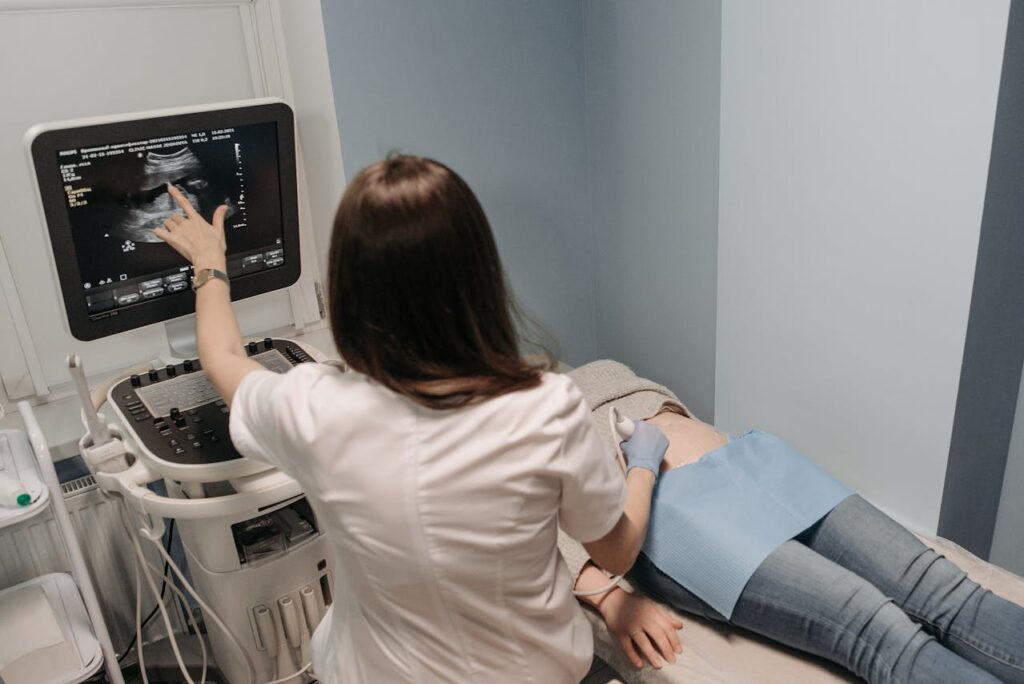

Since 2010, the Global Law Experts annual awards have been celebrating excellence, innovation and performance across the legal communities from around the world.
posted 1 year ago
This case involves a 24-year-old lady who had a stillbirth with her second pregnancy. The baby died in utero at 36 weeks and was delivered in hospital five days later.
Some tissue from the baby was sampled for chromosomal abnormality, and the client was informed that, as a couple, they should probably have genetic screening before planning their next pregnancy.
Two months later they were contacted by the hospital, and the couple were asked to meet a consultant for a result. They were told that no abnormality had shown up and that they should not worry about any genetic screening. The client indicated that she and her husband were asking questions and felt they weren’t being listened to by the consultant. They therefore wished to get a second opinion on the results to make sure they were accurate.
The couple wrote a complaint to the hospital, and a week later they received a call from the Director of Midwifery asking them to come to a meeting with herself and the consultant. They stated that because of the consultant’s attitude, they did not wish to meet again, and wanted the hospital to organise a second opinion. The couple had consulted a solicitor because they felt they were not being told the truth, and they did not like the consultant’s demeanour towards them, which they say caused much upset and stress.
Doctors do have a duty to treat patients with respect and dignity, and if a patient feels they are dissatisfied with their management or have been rudely treated, they have a right to make a complaint to the doctor’s employing authority, who could carry out an independent investigation to see if the complaint be upheld. Indeed, in 2019 alone, almost 100,000 complaints were made against GPs and dentists in England and Wales.
A complaint is not, however, a legal matter in terms of medical negligence, and the initiation – however short-lived – of a suit was inappropriate. This client should have been advised to follow the complaints procedure if they wished to proceed.
MDU figures for 2022 show that fewer than one in six actions in medical negligence actually succeed, with the vast majority failing on the grounds of causation. It must be remembered that subsequence is not the same as consequence.
Initial screening is, therefore, essential to manage client expectations at an early stage. This avoids unnecessary effort and costs for all concerned. Too many cases are taken to court with no chance of success. This is stressful for both the client and their legal adviser, and indeed for the medical personnel involved.
For fast and effective screening of all potential medical negligence cases, contact Peyton Medico Legal Services now on +44 (0)28 87724177 or email rpeyton@rpeyton.com
Get the latest legal news and updates at Global Law Experts
posted 1 day ago
posted 2 days ago
posted 3 days ago
posted 4 days ago
posted 5 days ago
No results available
Find the right Legal Expert for your business
Global Law Experts is dedicated to providing exceptional legal services to clients around the world. With a vast network of highly skilled and experienced lawyers, we are committed to delivering innovative and tailored solutions to meet the diverse needs of our clients in various jurisdictions.

When your international business faces financial distress, quick action is key! 🔑 Negotiating with creditors, restructuring debt, and understanding insolvency laws can help regain stability. Global Law Experts is here to guide you through your options.
🌍Explore the details on our website.
🔗Link in bio
#GlobalLawExperts #CommercialLaw #BusinessLaw #LegalAdvice #BusinessGrowth #LegalTips #BusinessStrategy #LegalCompliance #Law #LegalKnowledge #LegalAwareness #Law101 #LegalEducation #IntellectualProperty

Running a business is hard enough — lawsuits shouldn’t make it harder. 🚫 Protect your business with the right legal strategies and expert tools from Global Law Experts. Let’s secure your future together! 💼
🌍Explore the details on our website.
➡️www.globallawexperts.com
#GlobalLawExperts #CommercialLaw #BusinessLaw #LegalAdvice #BusinessGrowth #LegalTips #BusinessStrategy #LegalCompliance #Law #LegalKnowledge #LegalAwareness #Law101 #LegalEducation #IntellectualProperty #Infringed #Ecommerce #LegalBranding

Using NRIC numbers as passwords or identity proof? That era is done. Strengthen your security with multi-factor authentication and biometrics—because your clients' trust depends on it.
#SingaporeLaw #DataPrivacy #CyberSecurity #PDPA #NRIC #MFA #StrongAuthentication #LegalCompliance #ClientTrust

Swiss law protects secured lenders—with precision. From real estate to IP and bank accounts, every asset counts—just as long as it’s defined, documented, and delivered.
#SwissLaw #SecurityInterest #Collateral #InternationalLending #SwissFinance #LegalCompliance #GlobalBusiness #AssetSecurity

Gold trading in Saudi Arabia isn’t just a business—it’s a lab test, a permit, and a legal tightrope. Want to succeed? Start with compliance, hallmarking, and permits—or risk losing it all.
#GoldTrading #SaudiLaw #PreciousMetals #BusinessSetup #LegalCompliance #GlobalBusiness #SaudiArabia #TradeRigour

Second citizenship isn’t permanent—especially if you break the rules. Know the risks and how to safeguard your status: be transparent, stay lawful, and honour all citizenship requirements.
#SecondCitizenship #CitizenshipRisks #DualNationality #Compliance #GlobalMobility #LegalAdvice #ImmigrationLaw

Send welcome message